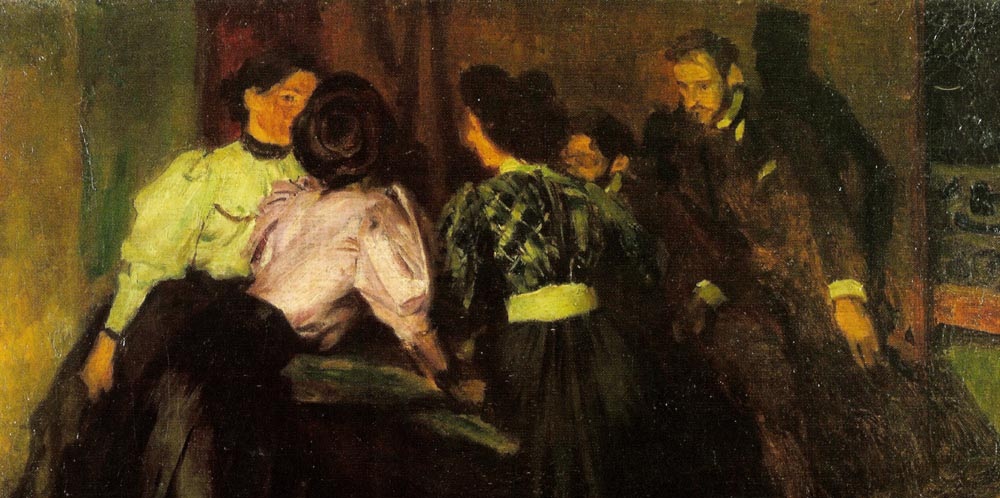
June 1, 2014, by Stephen Mumford
The Art of Conversation
I’ve always had a funny relationship with conversation. I often want to be left alone, to get on with work, read, do the things I like to do, quietly in solitude, and a conversation stops me. Sometimes you can feel trapped in a conversation, finding it dull or uncomfortable, inane and a waste of time, but unable to leave or disengage. In other cases, it is fun to converse, satisfying our social needs for the company of others, but also realising later that one has indulged in idle chatter, a pastime, from which no worth really arose.
Yet conversation is one of the most efficient and immediate ways in which we exchange ideas, make plans and gain inspiration. Certainly there is literature, film, art and all sorts of other media in which people communicate their thoughts but hardly anything is as rapid, responsive and interactive as a simple conversation. I work in a subject area – philosophy – that is perhaps more closely associated with face-to-face conversation than any other. We follow the tradition of Socrates whose method was simply to talk a question through with a collection of dear friends. He wrote nothing down but merely tried to understand an issue by discussing all the possible answers and discovering their strengths and weaknesses through dialogue.
These days I write a lot collaboratively with others and I’m very pleased with the output and results. Each writing project begins with extended discussion, talking through the arguments and trying to construct a plausible theory. An outsider might not see it as work but, for philosophers, this is our laboratory. And it’s not always easy. In discussion, there are few places to hide. A poor idea is likely to be challenged quickly. One’s ideas are held accountable, scrutinised, questioned. Tempers might get raised. But it is through this process that ideas interact and grow. They inform each other and from a thesis and antithesis we hope for a synthesis to emerge that is greater than any individual participant to the conversation could have produced alone. Conversation plays a vital role in the creative process, then, especially where the product of creation is ideas. The outcome will be a mutual manifestation of many minds.
I’ve been in varied conversations this week. Some of them were one-to-one, others were in big meetings, some were formal and some were informal. In all such instances, success or failure depends on the participants’ skills in the art of conversation. How well can someone verbally articulate their ideas; how well can they listen to and understand a different perspective from their own; how well can they take someone else’s idea and form a connection with one of theirs; how well can they keep the conversation on track, aimed towards its final goal; how skilled are they at encouraging each other, making the participants feel relaxed enough to chance a conjecture that might lead to progress, and so on.
If I look at what I do in my working year, I probably spend more time talking and listening than any other activity. Fortunately, I am surrounded by many bright people, with good ideas and who are able to understand and think, so most of the discussions are profitable. In my life it has not always been so. First one needs interesting people. But, second, they have to be people who understand what makes a good dialogue. Someone who lacks either or both of these assets may rapidly become a bore.
No comments yet, fill out a comment to be the first

Leave a Reply